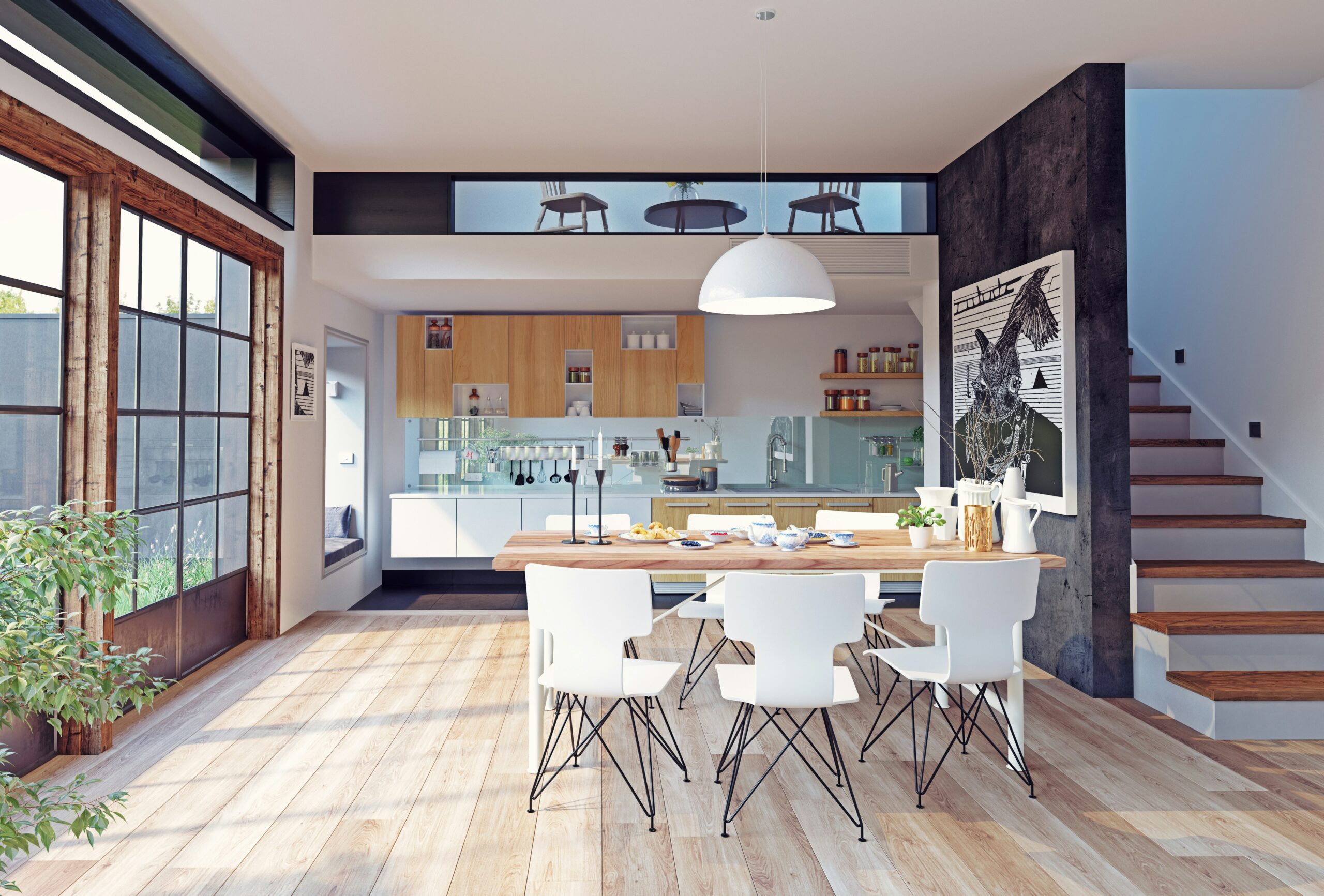What is Waterproof Flooring?
Waterproof flooring is designed to be completely impervious to water. This means that the material can withstand direct contact with water without being damaged. Whether it’s a minor spill or a major flood, waterproof flooring can endure extended exposure to water without warping, swelling, or developing mold.
Types of Waterproof Flooring:
- Vinyl Flooring: One of the most popular waterproof flooring options is vinyl flooring. Vinyl flooring is available in both sheet and plank formats, with luxury vinyl planks (LVP) being the top choice for homeowners looking for waterproof solutions. Vinyl planks are 100% waterproof, making them ideal for kitchens, bathrooms, laundry rooms, and basements where moisture levels are high.
- Tile Flooring: Ceramic and porcelain tiles are also considered waterproof. These materials are commonly used in bathrooms and kitchens because of their ability to repel water and resist stains. While the tile itself is waterproof, the grout between tiles needs to be properly sealed to prevent water from seeping into the subfloor.
- Rubber Flooring: Another waterproof option is rubber flooring, which is often used in gyms, basements, and even outdoor areas. Rubber flooring repels water and is incredibly durable, making it a great choice for areas prone to moisture or spills.
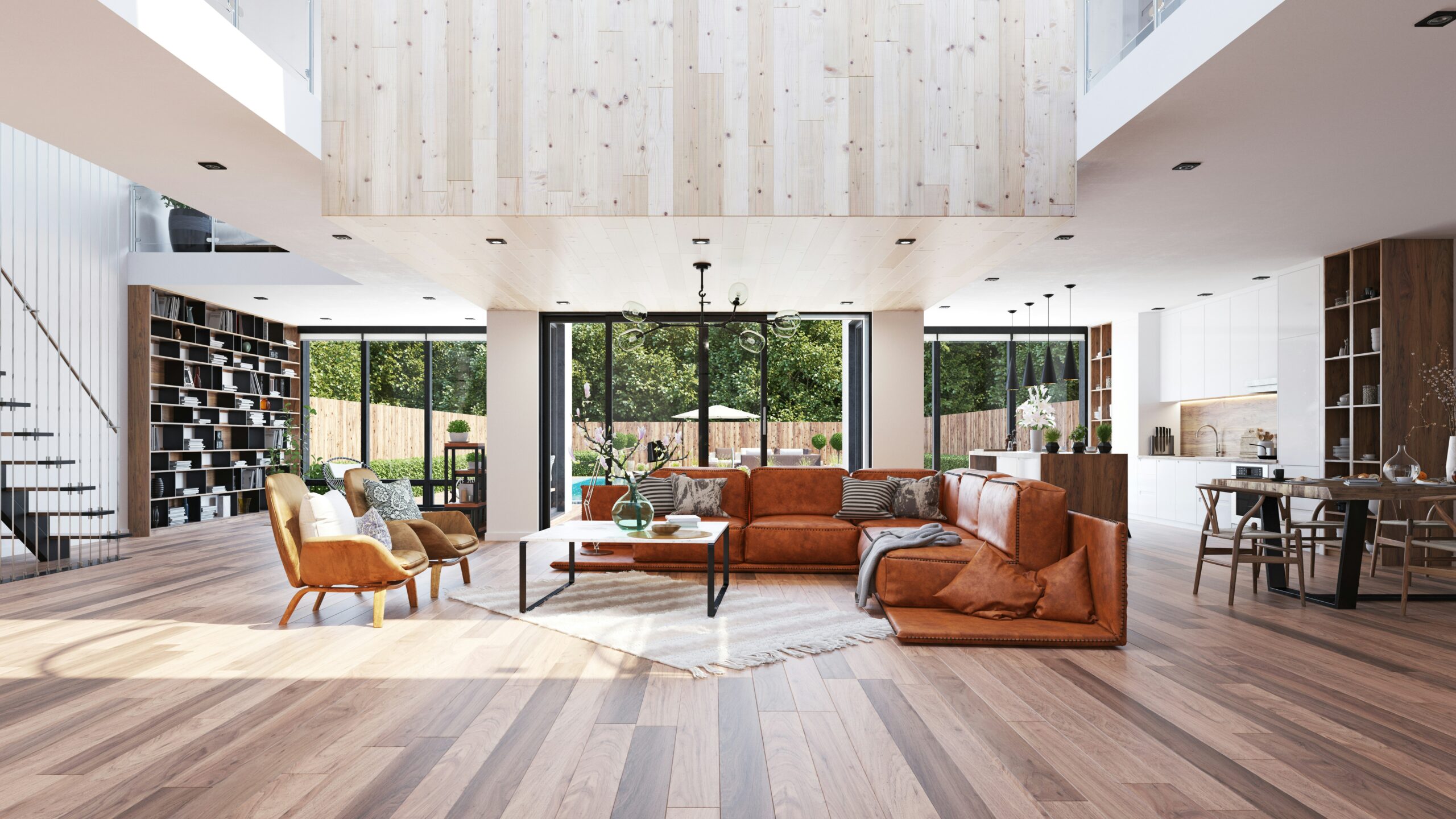
What is Water-Resistant Flooring?
Water-resistant flooring, on the other hand, can handle minor spills and splashes but is not designed for prolonged exposure to water. Water-resistant floors can repel moisture for a limited amount of time, allowing you to clean up spills before they cause any damage. However, if water is left standing on a water-resistant floor for too long, it may seep in and cause the material to swell, warp, or stain.
Types of Water-Resistant Flooring:
- Laminate Flooring: Laminate flooring is a popular water-resistant option that mimics the appearance of hardwood but is more affordable and durable. While laminate flooring can handle occasional spills, it is not waterproof. It’s important to clean up any liquids immediately to prevent damage.
- Engineered Hardwood: Engineered hardwood has a layer of real wood on top of a composite core, making it more resistant to moisture than traditional hardwood. However, it is still only water-resistant, meaning prolonged exposure to water can cause the wood to warp or buckle.
- Cork Flooring: Cork flooring is another water-resistant option. It has natural properties that make it resistant to moisture and mold, but like laminate, it is not fully waterproof. Cork can handle minor spills, but standing water can cause it to deteriorate over time.
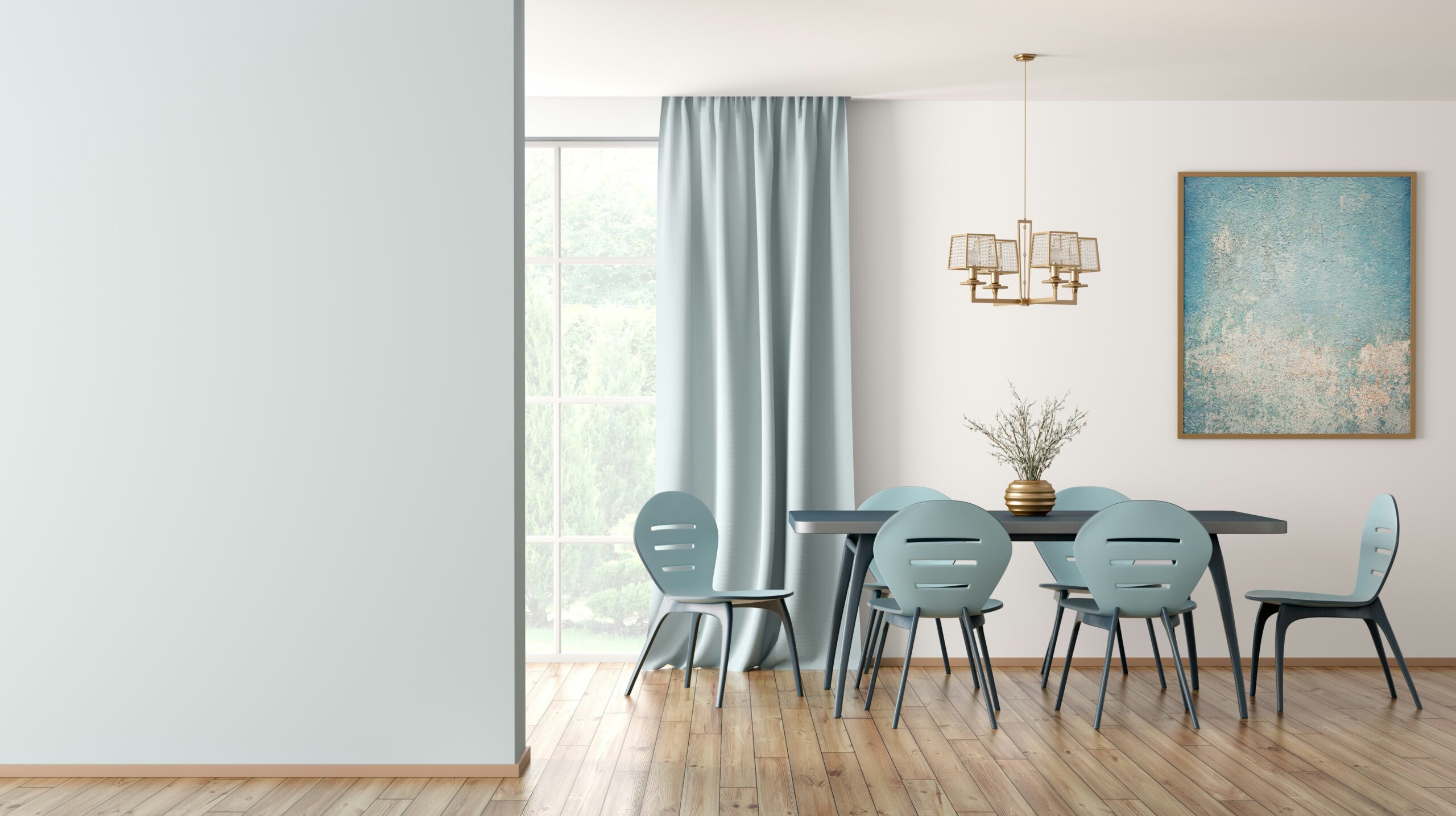
Key Differences Between Waterproof and Water-Resistant Flooring
- Moisture Protection.
- Waterproof flooring: Offers complete protection from water. You can leave water standing on it for long periods without worrying about damage
- Water-resistant flooring: Offers partial protection. It can handle spills if cleaned up quickly, but prolonged exposure will cause damage.
- Materials.
- Waterproof flooring: Includes materials like vinyl, tile, and rubber, which are inherently waterproof and resistant to water damage.
- Water-resistant flooring: Includes laminate, engineered hardwood, and cork, which can repel water for short periods but are not entirely impervious.
- Durability in Wet Environments.
- Waterproof flooring: Is suitable for any area prone to high moisture, such as bathrooms, kitchens, basements, and laundry rooms.
- Water-resistant flooring: Is better suited for areas like living rooms, bedrooms, or dining areas, where exposure to moisture is minimal.
- Cost.
- Waterproof flooring: Can sometimes be more expensive due to its specialized materials and technology.
- Water-resistant flooring: Typically more affordable but may require more maintenance and caution when exposed to moisture.
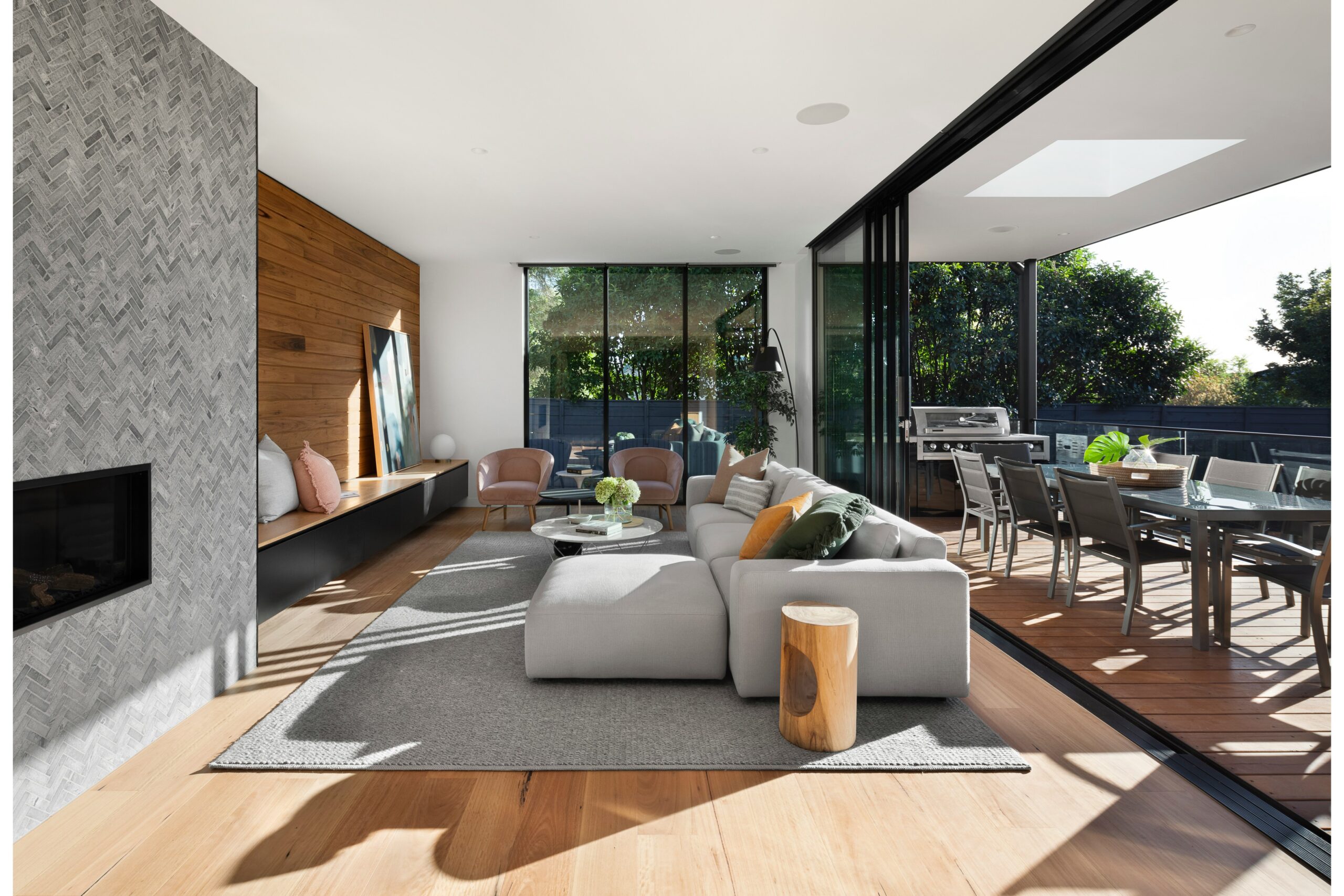
Which Flooring Should You Choose?
The choice between waterproof and water-resistant flooring depends on the specific needs of your space. Consider the following factors when making your decision:
- Location:
Where will the flooring be installed? For rooms like bathrooms, kitchens, and basements, waterproof flooring is the best option due to the high levels of moisture in these areas. In living rooms, bedrooms, or offices, water-resistant flooring may suffice, as spills are less likely and can be quickly cleaned. - Durability:
Do you have kids, pets, or high foot traffic in your home? Waterproof vinyl flooring can withstand the daily wear and tear that comes with active households. If you’re looking for flooring that can endure spills, scratches, and pet accidents, vinyl flooring is a smart investment for long-term durability. - Aesthetic Preferences:
If you prefer the look of hardwood or natural stone but need something more budget-friendly and moisture-resistant, water-resistant laminate or engineered hardwood can give you the appearance you desire without the cost or maintenance associated with real wood. Laminate is particularly great for creating the look of hardwood in rooms that don’t experience as much moisture. - Maintenance:
Waterproof flooring, like vinyl and tile, is incredibly easy to maintain and clean. It’s ideal for households that experience frequent spills, whether from kids, pets, or daily kitchen activities. Water-resistant flooring, while easier to maintain than traditional hardwood, still requires more attention when it comes to spills and moisture.
For a wide selection of both waterproof and water-resistant flooring options, MMY Flooring offers high-quality materials suitable for any room in your home or business.
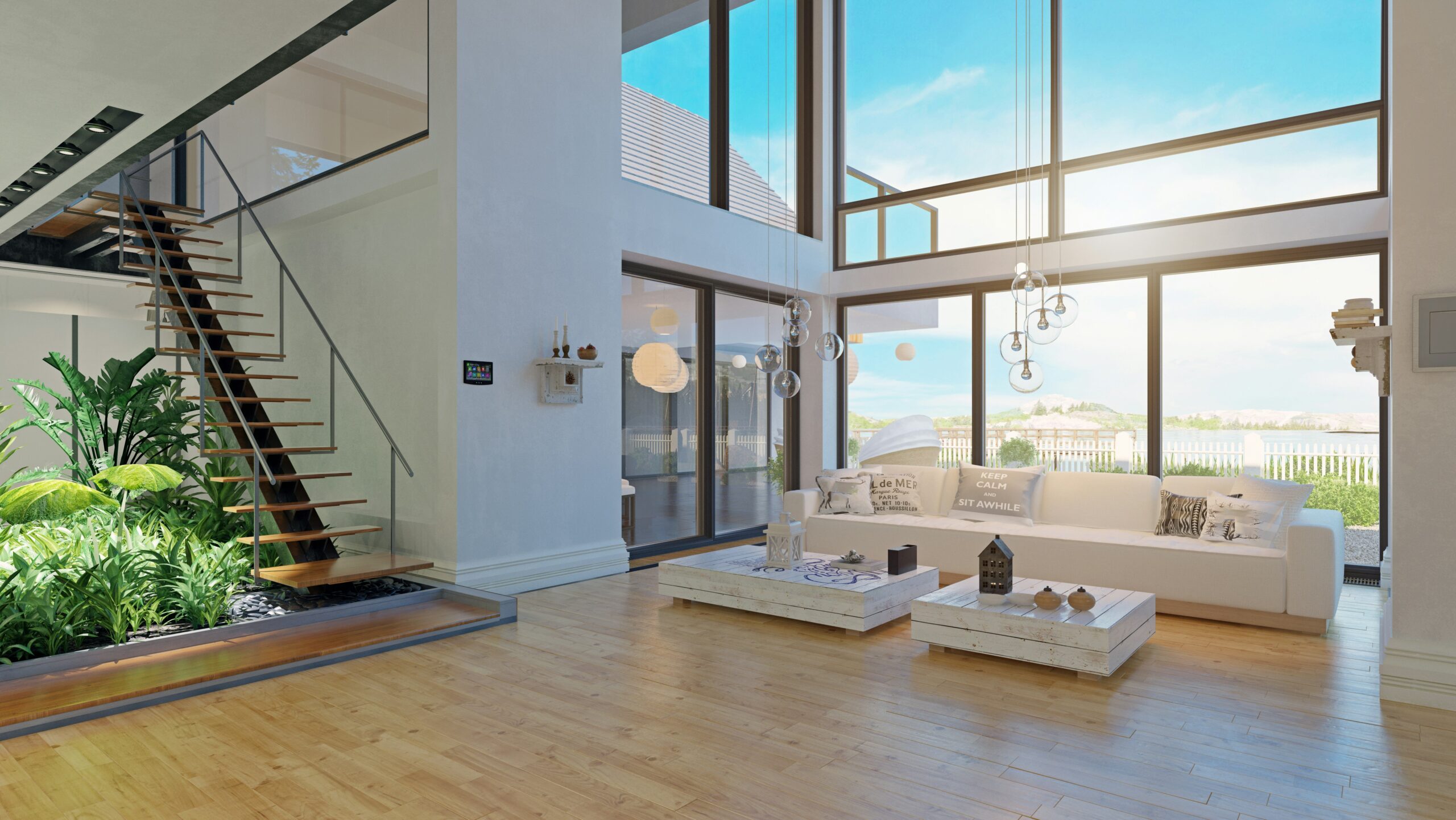
Waterproof Vinyl vs. Water-Resistant Laminate: A Closer Look
Let’s dive deeper into two of the most common choices: waterproof vinyl and water-resistant laminate flooring.
Waterproof Vinyl Flooring
Vinyl flooring has become a leading choice for waterproof solutions in both residential and commercial settings. With luxury vinyl planks (LVP), homeowners get the look of hardwood with the added benefit of 100% waterproof protection. Vinyl floors are also highly durable, scratch-resistant, and easy to install, making them ideal for areas with heavy foot traffic or homes with pets.
Vinyl is perfect for bathrooms, kitchens, laundry rooms, and basements where water exposure is a concern. It’s also available in a wide range of styles and colors, allowing you to find a design that complements your home’s décor.
Explore MMY Flooring’s wide variety of vinyl flooring in Los Angeles to find the perfect match for your space.
Water-Resistant Laminate Flooring
Laminate flooring offers a budget-friendly alternative to hardwood, with many styles that closely mimic the look of real wood. While laminate is not fully waterproof, it’s an excellent choice for rooms that don’t experience excessive moisture. Some newer laminate flooring options come with water-resistant cores and improved locking systems to provide better protection against water.
Laminate flooring is perfect for living rooms, bedrooms, and offices where spills can be managed quickly. However, it’s not recommended for areas with standing water or frequent spills, such as bathrooms or basements.
For durable, water-resistant laminate options, MMY Flooring has a great selection of affordable and stylish choices.
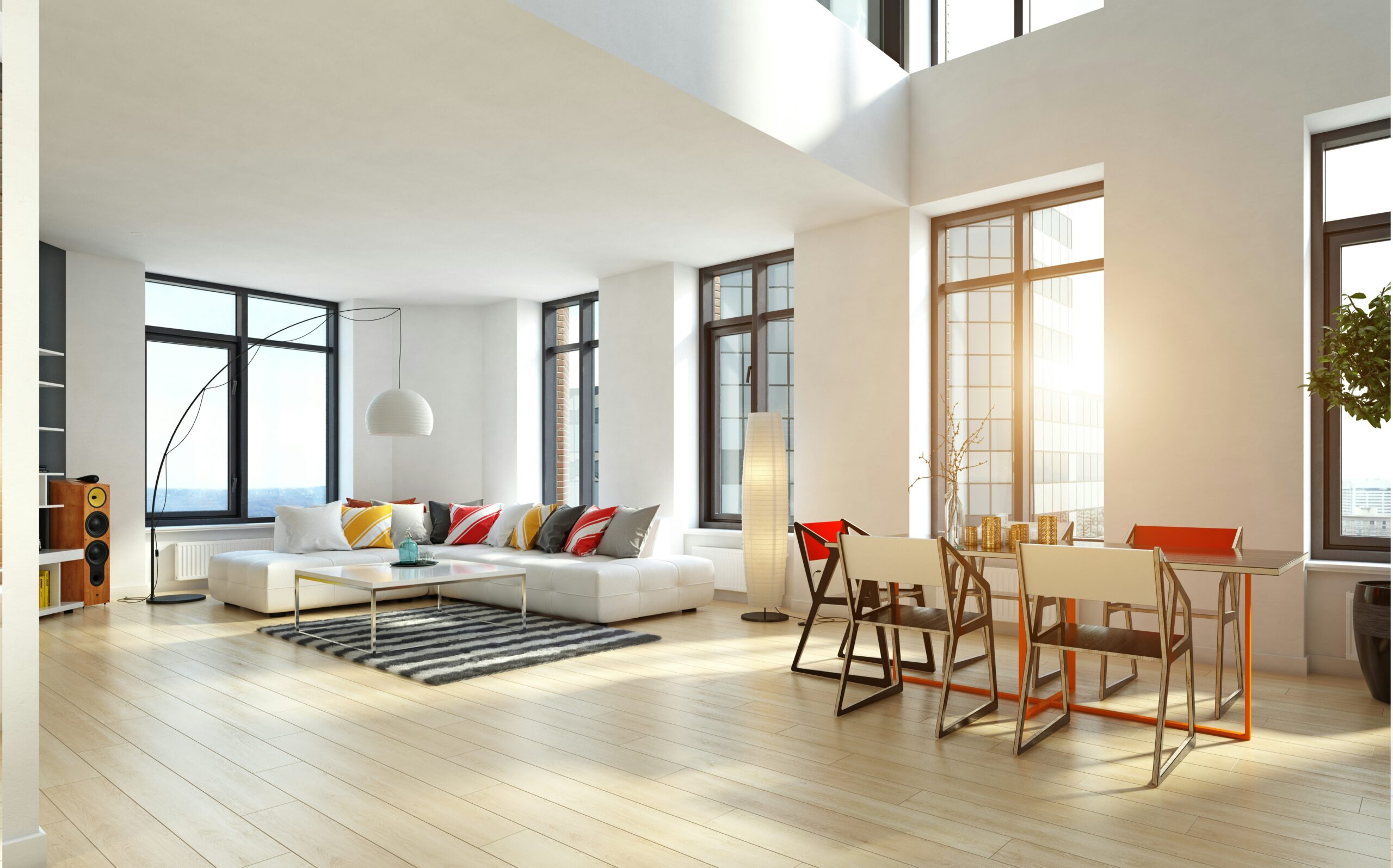
Conclusion: Waterproof or Water-Resistant—Which is Right for You?
Ultimately, the choice between waterproof and water-resistant flooring depends on your specific needs and the areas of your home or business where the flooring will be installed. Waterproof flooring is a must-have for spaces that deal with constant moisture, while water-resistant flooring works well in areas where occasional spills are more likely.
No matter what you choose, MMY Flooring has the perfect solution to meet your flooring needs. From high-quality waterproof vinyl to water-resistant laminate, you’ll find a variety of styles and materials to suit your taste and budget.

